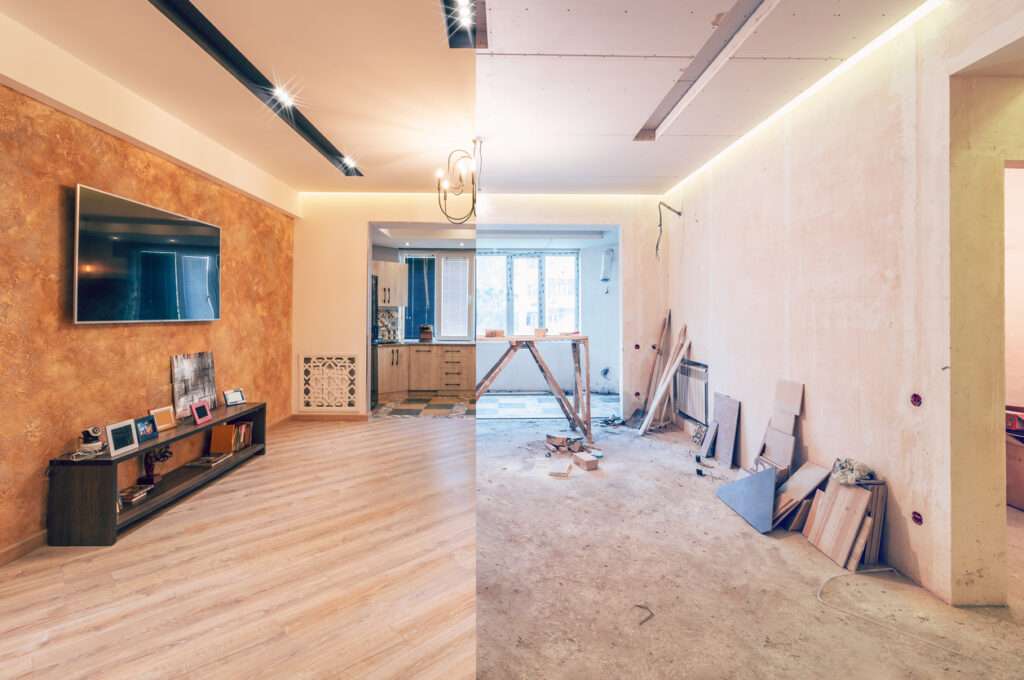Whether you’re buying a fixer-upper or updating your current home, renovations will improve the functionality of your property and increase its value.
Here’s your guide for making the process successful:
Set a goal: Prioritize renovations that help you meet your goals. For example, if you’d like to elevate your home’s aesthetic appeal, consider projects like landscaping the front yard or refurbishing a highly-trafficked room. If you’re more interested in guarding your home against natural disasters, consider exterior updates such as replacing the roof or windows.
Find inspiration: Browse home improvement magazines, websites and social media platforms for visual inspiration. Keep a collection of images and ideas that you can use to communicate with your contractor or designer.
Calculate return on investment: Certain projects can substantially reduce your utility bills while others can make your home more valuable when it’s time to sell. When calculating your renovation budget, don’t forget to factor in the projected return on investment.
Build a budget: You’ll need a budget worksheet to help you avoid overspending. Be sure to include a contingency reserve to pay for the inevitable unexpected costs that emerge along the way. If you’re short on needed funds, explore financing options with your lender. In some cases, accessing the equity you have built up in your home through refinancing or taking out a second mortgage can help cover the costs.
Select your contractor: The contractor is critical to the success of your renovation. Get recommendations from trusted sources, including friends, family and verified online resources. Meet with multiple contractors to discuss your project and request bids to gain a more thorough understanding of project costs and which contractor can best meet your goals. Of course, don’t forget to verify their qualifications. Ask for project references and documentation to confirm they have the proper licensing and liability insurance. Once you’ve found the right contractor, make sure your agreement is in writing to avoid potential disputes. The contract should contain a budget, scope of work and payment schedule that all parties have agreed upon.
Develop your project: Work with your contractor to develop a realistic timeline for your project that builds in extra time for unexpected delays. Before the work starts, you should also work with your contractor to obtain any permits needed and start sourcing materials.
Start building: Regular meetings with your contractor can help ensure that everything is on schedule, and that you are in the loop on any plan modifications. If changes are needed, make sure they’re submitted in writing as a change order. No matter how thorough your specifications are, you should be prepared for unexpected issues along the way. So be flexible and work with a trusted contractor to find practical solutions to issues that arise. Conduct a final inspection once all renovations have been completed and make sure to address any issues with the contractor before making your final payment.
Home renovations can make your home safer, more beautiful, more eco-friendly and more valuable, and with the right preparation and execution, you can complete your project on time and under budget.
By: StatePoint










